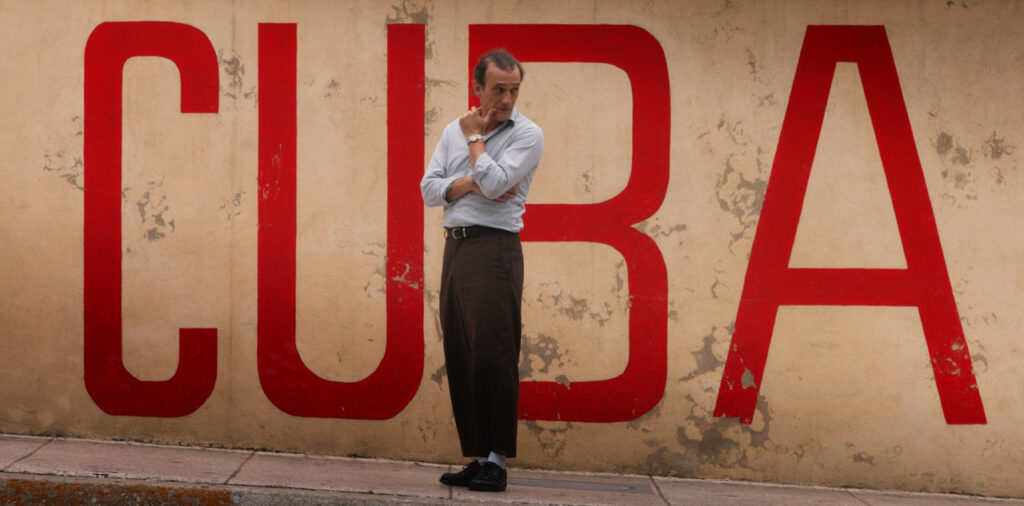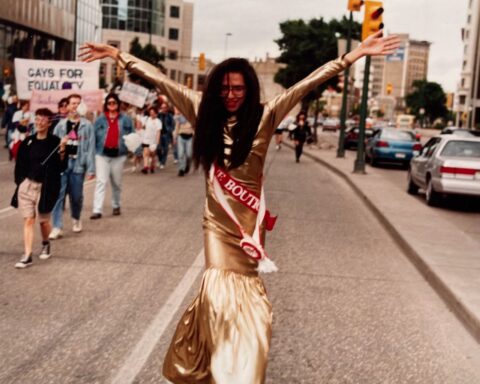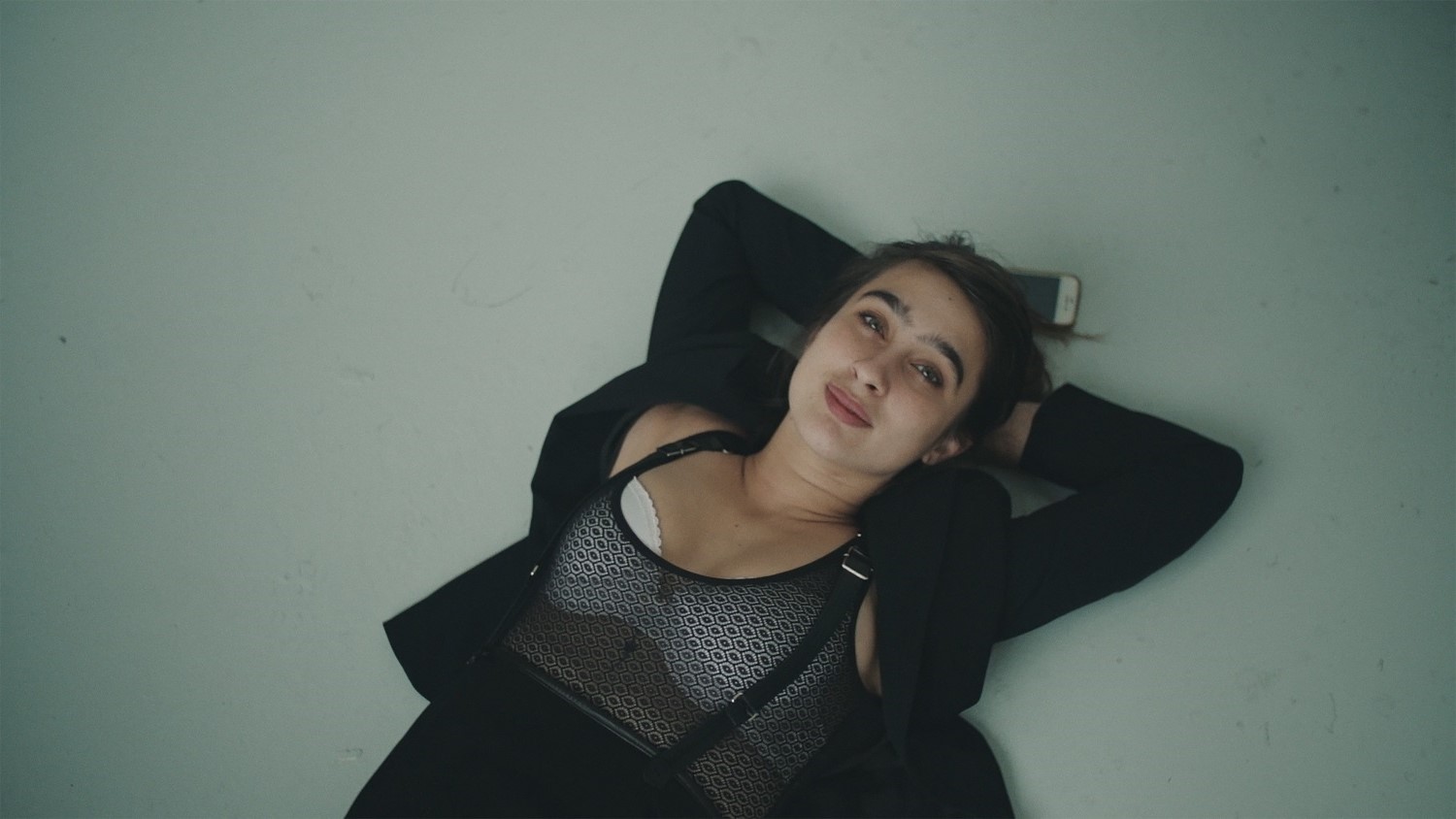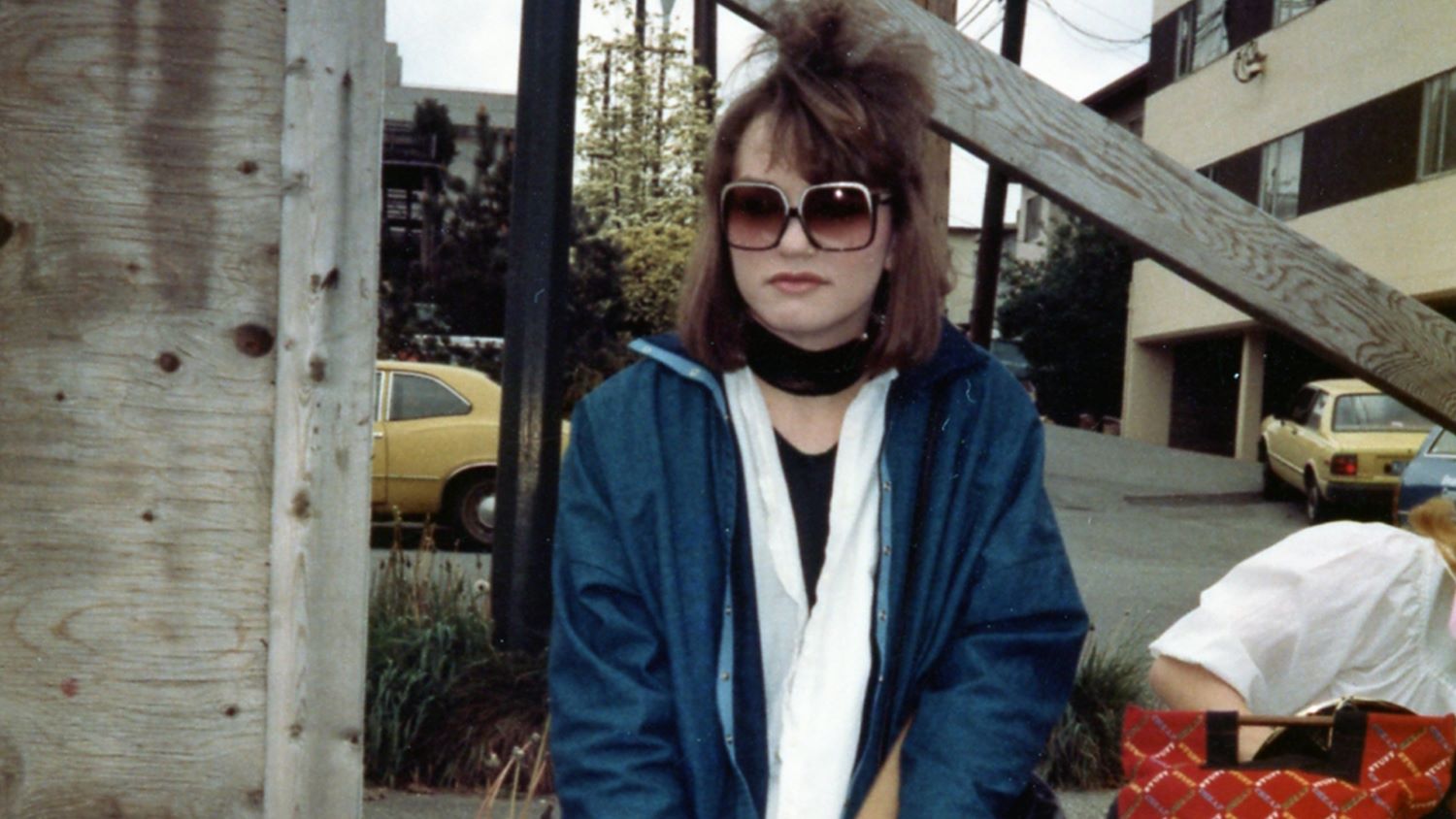The Eighth Floor
(Canada, 90 minutes.)
Dir. Pedro Ruiz
“The symbol of exile is a suitcase: a suitcase that never leaves you, that follows you around because you’re always ready to leave. You’re always wondering when, when, when?” says Jacques Lanctôt in The Eighth Floor.
It was the third of December in 1970 when former member of the Front de Libération du Québec (FLQ) Jacques Lanctôt arrived in Cuba with his pregnant wife and child. Prime Minister Pierre Elliott Trudeau had granted safe passage to Lanctôt and his family in exchange for the release of British councillor James Cross, who was kidnapped by the FLQ and held for two months. The Eighth Floor, a feature length hybrid film directed by Pedro Ruiz (Havana from on High), reveals this interesting story through an audio biography by Lanctôt himself and fictional reenactments. It is a stunning film, and shares quite a lot about Lanctôt’s life in exile on the Caribbean island.
The film gets its title from the eighth floor of the Hotel Nacional in Cuba where Lanctôt lived with his family. There, they were given cleaning services every day, meals, and needed to grow accustomed to the new country and lifestyle. Although being in a warm country near a beach might not seem like exile, it took time for Lanctôt to get used to it since he wanted to help with the independence of Quebec and wanted to find a way back to his country. As his stay in Cuba progressed, Lanctôt realised, “In Quebec, I was alone, isolated, but here I was surrounded by like-minded people. It’s so much easier. I’m more comfortable living in this environment than living on the fringe, than living as an outsider in my own country.”
Lanctôt recognized that Cuba is a country that strives for independence and the FLQ wanted independence for Quebec. Both the country and social group wanted freedom, and they tried to achieve this through movements and revolutions. The Eighth Floor shares how this was an important theme and message Lanctôt had conveyed.
Throughout this film, Lanctôt appears in a contemporary interview and shares his story while talking to the camera. His story is also re-enacted by Martin Dubreuil to represent his past and things he had experienced while in Cuba. Ruiz does an excellent job of using Dubreuil to play out various scenarios of Lanctôt’s life. For example, going to bars and becoming friends with the bartender, going to a gun range to improve his self-defence, and conveying the emotional frustrations being in exile can do to a person. Dubreuil is also often referred to as ‘the actor’ by other characters in the film, which, in a way, breaks the fourth wall. For example, in a scene, the sound recordist can be seen asking for coffee for ‘the actor’. This happens all while Lanctôt narrates the story himself. However, in some scenes, Ruiz blurs the lines of the past and present and puts both Lanctôt and Dubreuil in Cuba to represent a reflection of what has become of Lanctôt. It is very poetic, and poetry is another important aspect of this film. It can be heard between the dialogue of Dubreuil and the bartender as they listen to Omar Pérez López with his poem I Am Mot a Buddha. Dubreuil also recites the poem Split in 2 by Kelvis Ochoa. All the quotes and poetry in this film work beautifully with the cinematography and add a unique dimension to the piece.
As the film continues on, recurring motifs like musicians, and the image of Dubreuil watching archival black and white footage on an old box TV, can be found throughout the film. It feels very imaginative as Ruiz uses the art of words to reflect life. There is also the style of literary autofiction that can be seen for scenes that may have been harder to re-enact, which usually involves Lanctôt’s family members and other scenarios. The essence of Cuba is beautifully captured with the vibrant colours and warm tones that evoke the sense of freedom. Even though Lanctôt is in exile it almost feels welcoming and at home.
Overall, this film is a work of art with the hybrid mix of elements used. Pedro Ruiz does an amazing job at shedding light into this complex story, which humanises the FLQ member and looks deeper into the mind of Lanctôt and his journey. It is a very deep film and has many layers for the audience to discover themselves.












